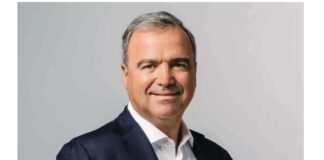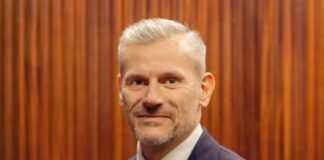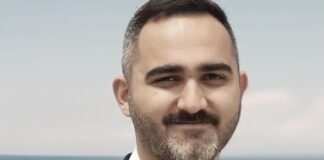kodehyve, which is a technology venture that is building the digital operating system for the real estate industry
Please introduce yourself and your startup kodehyve to our readers!
My name is Felix Hemmerling, I’m an entrepreneur from Luxembourg with a focus on web2 and web3, including real estate, DeFi, and NFTs. In 2020, I co-founded kodehyve, which is a technology venture that is building the digital operating system for the real estate industry.
Kodehyve is the result of the work experience I gained in the years before: After I started my first tech company in Singapore while I was at university, I worked on digital onboarding experiences, e-signatures and KYC/AML technologies as a Fin/RegTech product manager in the financial sector. Together with my former colleague and now co-founder Julien Casse (CTO), I saw an opportunity in real estate a few years ago. It is an industry we both are passionate about, but that is still not sufficiently digitised.
This is where we come in with the technology that we are building: kodehyve is providing a complete digital infrastructure, including Fin/RegTech technologies, that covers the whole real estate development process for almost all use cases. With our solution, we improve the collaboration between all stakeholders in the real estate ecosystem, with a focus on new construction projects. We started out in our home market Luxembourg, but have international ambitions as we identified a pressing need for digital transformation in the sector across borders as well.
How did you get the idea of kodehyve?
I bought my first apartment in 2019, which was supposed to be a big and exciting step in my life. But in fact, I was utterly shocked by the lack of customer experience I got in return for the fortune I spent. I realised that it is easier to track the delivery of a product you bought on Amazon for €10 than the development of a new property project that easily costs buyers a six- or seven-figure sum.
The main problem is that in the real estate sector, a lot of redundant work is happening by all the various parties that are involved. When it comes to document and information exchanges during the whole lifecycle of a new property development project or transaction, agencies, architects, property developers, subcontractors, banks, insurances, and the end customers all need to align, sign legal paperwork, and much more. With current processes and tools, this leads to a lot of inefficiencies, a lack of transparency, and unnecessary costs.
I discussed this negative experience with my co-founder Julien back then. He is a full-stack software engineer and also has a background in the Fin/RegTech space. Together we realised that we could actually solve a vast amount of these inefficiencies by implementing and tweaking some of the FinTech and RegTech technologies we developed for the financial sector. Based on that, I started to speak to some people in the real estate sector, including real estate developers, investors and agencies. The result was that no matter the size of a property development company, its legacy or experience in the industry, the frustrating experience I had was usually the same for all clients. That’s when Julien and I decided to do something about it, and this is how kodehyve ultimately was born.
Why did you decide to start with kodehyve?
Julien and I are both ambitious problem solvers and coders at heart with a shared passion for real estate. Since the problem we discovered in this particular sector is a huge one, we felt especially drawn to it – solving the described pain points of the real estate industry with digital technology is a big business opportunity. In Europe, the industry represents on average about 10% of a country’s GDP.
But the whole market is very fragmented with lots of players that are interdependently involved in real estate development projects and transactions, which leads to a lot of smaller subproblems that all need to be tackled. Most of the time, the different types of organisations within the market work with outdated processes and use numerous different tools in their daily business. We want to change this by providing an end-to-end operating system that covers various use cases and by simultaneously offering seamless digital user experiences. By applying our former experiences in FinTech and RegTech, building modular data-driven software solutions, we can help to elevate the whole industry and make it more efficient and sustainable.
Lastly, Julien and I are very complementary as co-founders, which is why we eventually decided to start kodehyve together two years ago. Julien started to develop software at the age of 16 and has extensive experience in FinTech and RegTech. In his role as CTO, he is very focused on the user experience with the goal to build a product that our customers do not want to miss anymore. Given my background as an entrepreneur and product manager for digital customer onboarding, payments, AML/KYC processes, and e-signatures in the financial sector, we both share the same attributes and vision for where we want to go with our company.
What is the vision behind kodehyve?
Our vision is to provide the most powerful operating system to property developers and all other market participants alike, thereby adding substantial value to the entire real estate industry. Our software solutions shall increase operational efficiencies that will reduce human errors and costs, improve the quality and execution of real estate projects, and contribute to the decarbonation of the industry. By improving collaboration and the exchange of data, we want to increase the transparency within the ecosystem not only for property developers and their partners but also investors and end customers. Overall, we aim to digitally transform one of the most ‘old-school’, but at the same time most important, industries to accelerate the development of new real estate projects and create a positive impact.
How difficult was the start and which challenges you had to overcome?
We decided to formally quit our jobs at the beginning of 2020, just a few weeks before the COVID-19 pandemic unfolded. This was surely a challenge, but one that we managed to overcome by simply focusing on building the first version of our product. We did so without bringing any investors on board right in the beginning. So we simply took the leap and never looked back.
Another challenge for us was that it often takes time to educate property developers and their stakeholders (i.e. employees, clients, partners) about new technologies. Having them go through a digital transformation can be a lengthy process. However, by zooming in on their pain points through countless conversations with different players within the real estate industry over time, we found a way to make the transition and adoption of our technology quite smooth by now.
Who is your target audience?
We mainly work with property developers, but our clients and use cases also include real estate funds, real estate agencies as well as real estate federations or associations like the Luxembourg Chamber of Real Estate (Chambre Immobilière). Our target clients and partners usually range from small organisations with only two people all the way up to hundreds of employees. At this stage, we are mainly focused on new residential property development projects in Western Europe.
What is the USP of your startup?
One of the main advantages of using kodehyve is that we are harmonising a tremendous amount of data from various sources that usually is not managed well due to the fragmentation of the market. Our data-driven platform visualises and reconciles the available data to help property developers make more informed, high quality decisions. We put utmost attention on data security as we are dealing with many confidential and sensitive information – which is something we learned to prioritise when working in FinTech and RegTech before. Moreover, as we are building the operating system for the entire industry, we are offering an integrated end-to-end solution that covers almost all use cases that occur within the market instead of just a few specific ones.
For example, we have recently launched an e-signature platform. At the moment, it is specifically tailored to the needs of the real estate industry in Luxembourg, providing ready-to-use legal documents and templates for the various stakeholders in the market that are officially approved by the Luxembourg Chamber of Real Estate (Chambre Immobilière). Solving the pain points around managing documentation and signing legally binding paperwork is not a standalone product, but a feature that is integrated with all the other functions that we provide, i.e. financial data analysis, KYC/AML checks, workflow management, and planning. We will roll out the feature locally adapted in other markets going forward.
Can you describe your typical workday?
When you’re a startup founder, your workday varies greatly. For me, every day is different depending on what is currently going on and which period we are generally in with the company. Overall, my main daily responsibilities are focused on product development, sales & marketing, HR, and investor relations. For example, a major task in my role as CEO is to provide the best conditions for our team so everybody has all the information they need and the right environment to excel in their respective roles.
Since our product is the heart and centre of our company, I dedicate a lot of time to talking to our customers and sales leads in order to exactly understand their needs – which I then share with our product and development team to help optimise our product roadmap. Additionally, Julien and I check in every day as well, which is crucial as co-founders to stay aligned and adapt our strategy if needed. Whenever I can take the time, a round of ‘foosball’ (table football) is definitely also part of a typical workday.
Where do you see yourself and your startup kodehyve in five years?
Our goal is to build the most powerful operating system for property developers in Europe and beyond. It is important to us to build the best available product that is specifically tailored to the needs of our specific target group – great software engineering is at the core of what we do today and aim to continue to do also in five years. As the next step for us as a company, we are preparing for strong international growth, which means that we will hire many new talented team members in the coming years to help us execute our expansion plans. Since the real estate industry is such a big market around the globe, there is lots for us to do. We will continue to diversify our product and adjust it locally where needed in the near and long-term future.
What 3 tips would you give to founders?
1.) Do not worry about being an outsider and potentially stepping on people’s feet. I think it is important that you listen to your intuition and follow your own vision and goals. You do not have to justify yourself to anyone when you want to build a disruptive business. I recommend not hesitating to speak up and to be vocal about who you are and what your thoughts are about a certain problem, industry, or service. Of course it helps to have your ideas and plans challenged by people you appreciate – but it goes a long way to stay equally sceptical and careful whose advice you take. What is actually the most important at any given point in time: Care deeply about what your users and customers think than anyone else.
2.) Be conscious of your time. As a founder, you should only spend your time on topics, activities, and people you are truly excited about and admire. You don’t have to be present at every startup event and network with everyone just for the sake of it.You won’t get your time back, so make sure you focus on the things that are truly important and essential.
3.) Work in the background. You do not need to do something special to get constantly noticed. Just like with your time, you only need the attention of the right people rather than by everyone. It is better to invest your energy in building amazing products than in catering to certain outside expectations that do not get you closer to reaching your goals. Lastly, never forget to enjoy the process of doing so.
Thank you Felix Hemmerling for the Interview
Statements of the author and the interviewee do not necessarily represent the editors and the publisher opinion again.
















